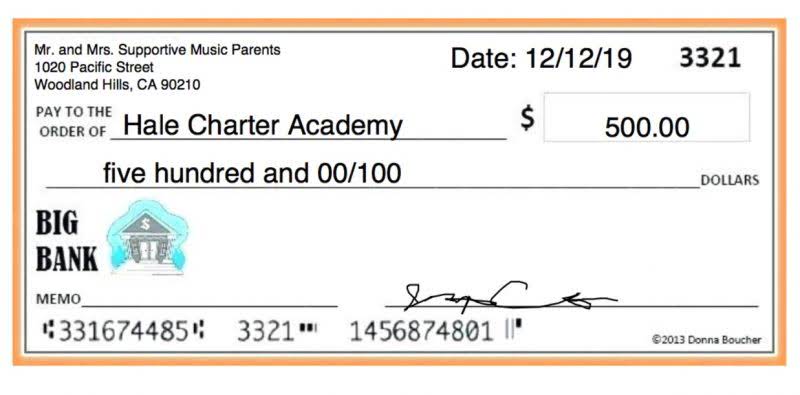
Clients with higher urgency or a need for premium services may expect round-the-clock support, adding value to your offering. Aligning on these terms ensures transparency and avoids misunderstandings later. Retainers often offer better rates than hourly or one-off payments, saving costs in the long run. Providers gain a better understanding of client needs, leading to better results. Both parties agree on the service details, deliverables, and payment structure.
Services That
Your contract should detail the scope of work, the amount of the retainer fee, the frequency of payment, and what happens if the client https://growthngo.org/is-the-quickbooks-online-proadvisor-program-worth/ fails to pay. It should also specify whether the retainer is refundable or non-refundable and under what conditions this applies. All these aspects should be clearly defined to avoid misunderstandings and disputes. When it comes to retainer fees, one of the most important things to consider is how much you can expect to pay. The answer to this question will depend on a variety of factors, including your industry and the specific services that you require. When it comes to hiring professional services, many businesses prefer paying a retainer fee.
Frequently asked questions about lawyer retainers
Now, say the attorney who is assigned to your matter has an hourly rate of $450. Below, we discuss in greater detail the benefits and limitations of a retainer fee agreement. Although they may not be for everyone, retainers can bring an array of powerful benefits to many clients and lawyers. According to Forbes, “Retainer agreements offer value to both parties as clients get priority access to sought-after expertise while firms gain a stable revenue stream.”

Trial Periods and Pilot Programs

An agreement can be made between the client and a lawyer, wherein the lawyer gets a nominal account at the beginning and his complete fee only if he wins the case. Further, the client may enter into a retainership agreement with the lawyer to engage himself in the future whenever any legal issues are faced. Such retainership agreements are made for restaurants, hospitals, and tech-oriented companies. Retainership providers or service providers may be individuals (in most cases) or corporate entities with a group of experts. A retainership provider or service provider is generally an expert in the relevant field, a lawyer, freelancer, or consultant. The amount of the retainer fee will depend on the nature of the project or engagement, the level of expertise required by the professional, and the client’s budget.
How to Transition Clients Into Retainers?
A primary function of a retainer is to formally engage a lawyer, securing their availability to handle what is a retainer fee a case. By accepting the fee, the attorney is committing their time and resources to the client, which may mean turning down other potential work. This provides the client with the assurance that their legal counsel is reserved and ready to act on their behalf. When you pay a general retainer, you still must pay separately for any legal services you actually need. But, your retainer guarantees the lawyer or firm will be there for you if you require their assistance. These proactive measures ensure that both clients and service providers can navigate financial discrepancies smoothly, maintaining trust and service continuity.
- It’s an excellent solution for clients and agencies alike, as it takes the hassle out of managing the retainer payment process.
- Retainer fees can enhance the client experience by providing a sense of security and transparency.
- A lawyer retainer fee refers to money paid to a lawyer in a lump sum to secure his or her legal services.
- One common misconception is that retainer fees are an upfront payment for work.
The customer can get a refund for any part of the retainer fee that they did not earn by doing useful work. Only true retainers, paid solely for availability, and certain advance payments (if allowed under local law) may be deposited directly into the firm’s operating account. Attorneys must avoid commingling client and firm funds, as doing so is a fiduciary violation that may result in penalties or disciplinary action. Furthermore, retainer agreements may foster a stronger client-lawyer relationship. With a lawyer committed to working with you on multiple matters, you often receive more personalized service. Your lawyer will have a deeper understanding of your case history and personal goals, which can lead to more effective representation.

Clients, in turn, should take time to understand the terms of payment, ask detailed questions, and verify how their funds will be used. While both deposits and retainers involve upfront payments, their legal purpose, fund ownership, and refundability operate on fundamentally different principles. They are often held by third parties and are either refunded when the agreement is fulfilled or forfeited as liquidated damages if one party breaches the contract. Retainers, in contrast, are used to secure professional services, especially in legal settings. These funds are governed by strict ethical rules that determine when and how attorneys can earn and withdraw them. The use of retainer fees also has a significant role in maintaining a steady working relationship.
Alternatives to retainer fees for agencies

Understanding the differences between refundable and non-refundable retainer agreements is crucial for attorneys to draft contracts that align with their clients’ needs and expectations. By outlining the scope of work and the potential outcomes of the case, lawyers can create fair and transparent retainer agreements that benefit both parties. Common types of legal fees include entry fees, advance retainer payments, and structured retainer agreements outlining services and payment terms. In the real estate industry, a retainer fee is an upfront payment made by a client to secure the services of a real estate professional, such as a lawyer or consultant. This fee is considered a down payment on the future services that will be provided by the professional. A retainer fee is an upfront payment made by a client to secure the services of a professional in the real estate industry.

How To Set Your Consulting Retainer Fee
- Tenants pay these deposits to protect landlords against unpaid rent or property damage beyond normal wear and tear.
- Additionally, if the fee is excessive, it may be considered unethical or even illegal.
- A retainer is a fee paid in advance in order to secure the services of a law firm.
- She has been writing full time for over a decade with a focus on making financial and legal topics understandable and fun.
It sets clear expectations regarding the scope of work, payment structure, and ensures transparency in terms of billing and costs. Think of it as placing a down payment on peace of mind, ensuring that you have access to legal expertise when you need it net sales most. Whether you’re facing a criminal charge or require guidance on complex legal matters, having a retainer fee set up can be a lifesaver.
